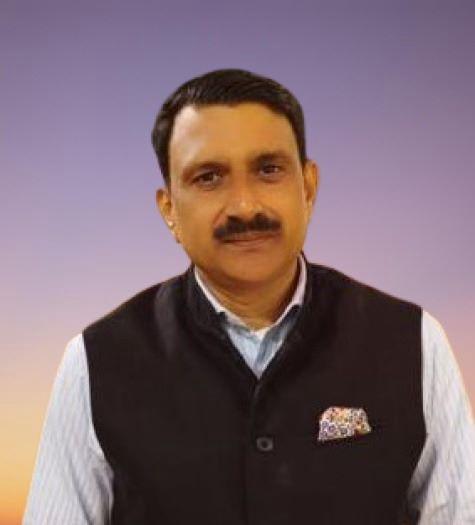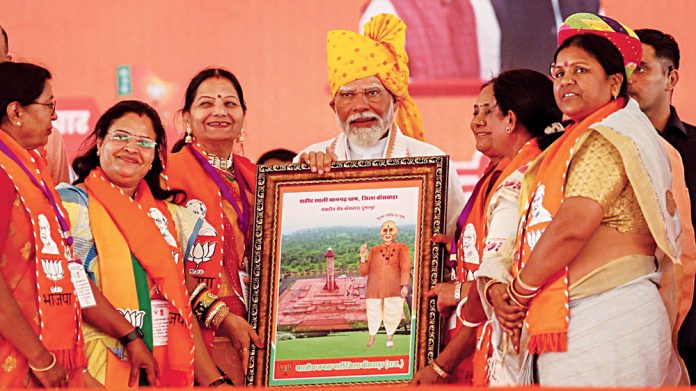Prime Minister Narendra Modi has shifted the focus of the election campaign by targeting the redistribution scheme proposed by Rahul Gandhi's Congress Party in its election manifesto. The debate, which initially revolved around social justice (Jitani abadi utana haq) and wealth distribution has now transformed into a narrative of polarisation, with Modi leading the charge against Congress's proposed policies.
The debate originated from the suggestion of conducting a caste census, proposed by influential players like Lalu Yadav from the ‘Mandal‘ era, during Nitish Kumar's attempts to form an anti-BJP coalition, last year. With Kumar's subsequent ouster and Rahul Gandhi's addition of a wealth survey to the caste census proposal, the conversation shifted towards the concept of social justice and equitable distribution of resources. Rahul keeps going that he will do X-ray of India to check who have kept the wealth.
Modi pounced on it immediately after the tricky first phase (their weakest) of polling. He is strategically targeting Congress's redistribution agenda. There was always the risk of sounding Anti Poor, so he used his words carefully. By invoking the imagery of a “Mangalsutra” – a symbol of marriage in Hindu culture – Modi deftly framed the debate, effectively countering the redistribution narrative and steering the conversation towards polarisation.

Furthermore, Modi capitalized on the anti-reservation sentiment propagated by the opposition, particularly targeting SC and ST voters who had shown discontent towards the BJP in states like Rajasthan. By questioning Congress's stance on reservation for SCs and STs vis-à-vis Muslims, Modi placed the onus on Congress to defend its position, thereby reclaiming the advantage in the reservation debate. PM asked INDIA block, “Will Congress announce that they won't distribute Reservation of SCs & STs among MUSLIMS?”
Following Modi's urban naxal and Muslim appeasement attack on Congress, the BJP's offensive extended to invoking a controversial statement made by former Prime Minister Manmohan Singh in 2006, wherein he purportedly stated that “Muslims have the first claim on resources.” Congress communication department works overtime to dismiss this as a distortion of Singh's remarks. Congress contends that the former Prime Minister's remarks were inclusive of all communities and not specifically for Muslims. However, this argument runs counter to Rahul Gandhi's vision of conducting an X-ray of India and his pledge of equitable distribution based on population demographics. With Scheduled Tribes (STs) comprising 8.6% and Scheduled Castes (SCs) 16.6% of the population, alongside Muslims at 14.2%, even if one assumes the resource allocation statement to encompass SCs, STs, and Muslims, the explicit mention of Muslims by Manmohan Singh suggests a prioritization within these groups. This assertion disregards the substantial population of Other Backward Classes (OBCs), constituting 41% of India's populace, further complicating the equitable distribution discourse.
Renowned Dalit thought scholar Dilip Mandal has also criticized Congress's defense of Singh's statement, accusing the party of planning to divide reservation along religious lines. Mandal highlights Singh's alleged propositions, including separate reservation for Muslims and the inclusion of Muslims in the list of scheduled castes, as evidence of Congress's divisive agenda.
He writes on X, “Manmohan Singh's statement that Muslims have the first right on the country's resources did not come suddenly. At the same time, an attempt was being made to:
- Muslims should also be included in the list of scheduled castes
- Muslims should be given 15% separate reservation in government jobs
- OBC reservation should be divided on the basis of religion and 6% should be given separately to Muslims.
- SC status should be protected even after conversion of religion.”
He further adds, “The direct loss of this was to be suffered by the most deprived SC, ST and OBC of the country. But due to their opposition this could not happen. IAS officer Asha Das Madame has a big role in this.”
As the debate intensifies and polarizes the electorate, voter turnout is expected to rise, indicating the significance of these issues in shaping the electoral landscape. With both parties entrenched in their respective positions, the stage is set for a contentious and high-stakes electoral battle.

Ram Kumar Kaushik is a seasoned journalist with over 25 years of experience across mediums. The architect of this news website, he is also a consultant with several media groups. He was formerly the group managing editor of ITV Network (NewsX, India News and The Sunday Guardian) and its digital products.



